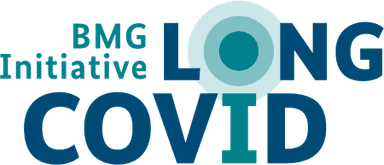May 2025 | RECOVER Initiative | PLOS One
Increased risk of autoimmune diseases, particularly following severe COVID-19 illness
Researchers from the RECOVER Initiative have investigated the connection between an infection with the SARS-CoV-2 coronavirus and the emergence of autoimmune diseases. In the case of autoimmune diseases, the immune system turns on the body’s own cells or tissue. The researchers evaluated health data from various databases for over two million people who had had a confirmed coronavirus infection. They investigated whether autoimmune diseases emerged for the first time within a period of two years after the infection. They considered, in particular, the severity of the COVID-19 illness.
The results show that after infection with the coronavirus, autoimmune diseases occurred more frequently. This was especially true for people who had been severely ill with COVID-19.
The autoimmune diseases observed included, for instance, autoimmune thyroid diseases, particularly Hashimoto's thyroiditis. With this disease, the body’s immune system turns on its own thyroid tissue. In the long term, this can lead to reduced functioning of the thyroid gland with symptoms such as fatigue, weight gain and constipation.
Moreover, people who had been severely ill with COVID-19 later experienced psoriasis and associated joint pains more frequently. Psoriasis is an inflammatory skin disease. The immune system causes excessive cell formation, causing scaly and red skin patches. Some of those affected also experience painful arthritis (psoriasis arthritis).
Following severe COVID-19 illness, chronic inflammatory bowel diseases also arose more frequently. Chronic inflammatory bowel diseases such as Morbus Crohn and Colitis ulcerosa lead to recurrent bowel infections that can cause stomach ache, diarrhoea and weight loss.
Among the children examined, it became apparent that especially after severe COVID-19 illnesses type 1 diabetes was newly diagnosed more frequently. This type of diabetes develops when the body's immune system turns on the cells in the pancreas, which normally produce the messenger substance insulin. As a result, the body can no longer sufficiently regulate the sugar level in the blood.
The study results indicate that people who had had a severe COVID-19 illness were at increased risk of developing autoimmune diseases compared to people with a mild course. When providing care to patients who had a severe case of COVID-19 with the associated symptoms, doctors should therefore also consider potential autoimmune diseases, above all following severe courses of disease.
RECOVER Initiative
The RECOVER Initiative was launched by the National Institutes of Health (NIH) in the USA. It is a national research programme designed to better understand, prevent and treat Long COVID.
PLOS One
PLOS One is an online journal of the Public Library of Science (PLOS) that publishes research from numerous scientific disciplines. All articles are freely accessible. The aim of PLOS ONE is to make science fast, transparent and accessible to the general public.
